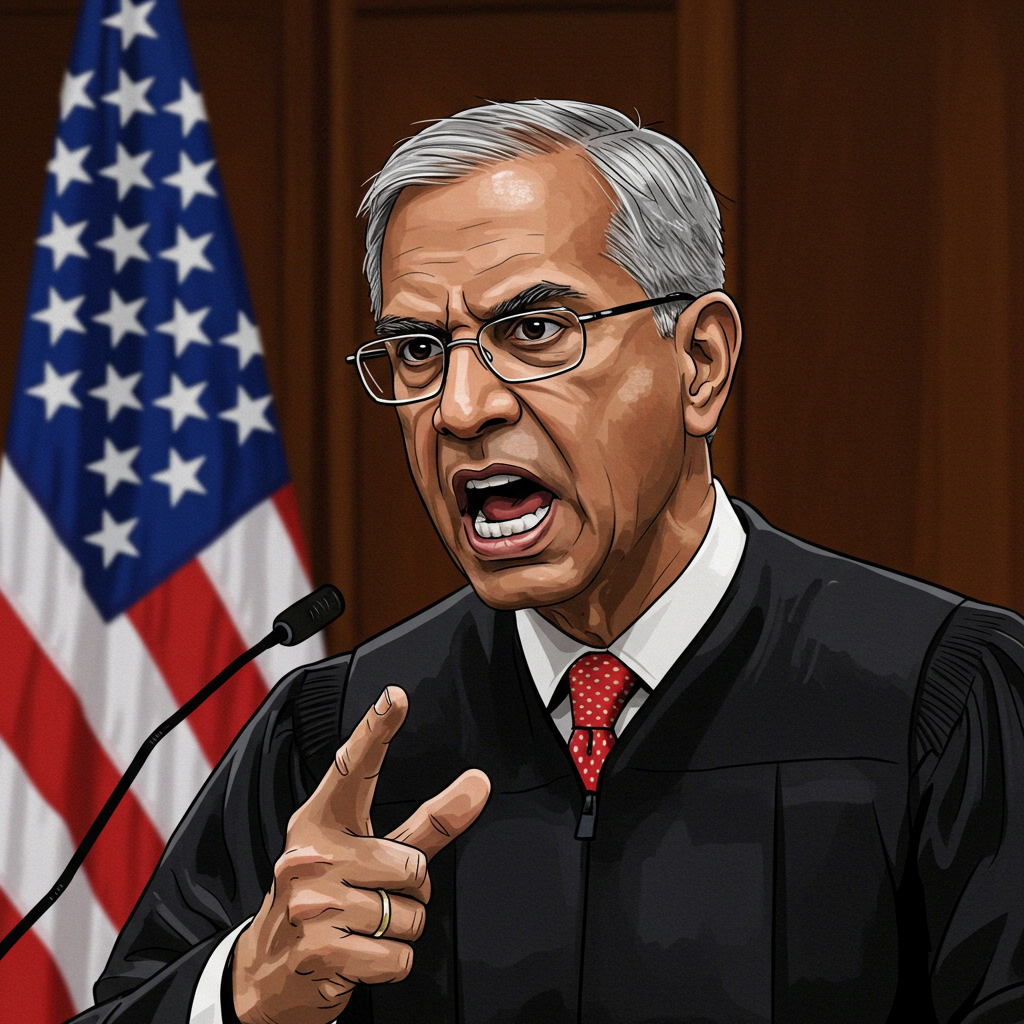High Drama in Court: Judge Furious Over Leaked Diddy Trial Secrets
The federal trial of Sean “Diddy” Combs has seen its share of intense moments, but none perhaps as pointed as the one that unfolded on Day 25. U.S. District Judge Arun Subramanian delivered a stern and visibly angry rebuke to both the prosecution and defense legal teams after information from a sealed proceeding appeared in a media report.
The unexpected courtroom outburst highlighted serious concerns about potential breaches of a strict gag order that covers attorneys and others involved in the high-profile case.
“Someone is Lying”: Judge Warns of Contempt
According to reports from the courtroom, Judge Subramanian was furious upon learning that details intended to remain under seal had made their way into the public domain via an online article. Questioning the lawyers directly, he demanded to know the source of the leak.
“Someone is lying,” the judge stated emphatically, stressing that the relevant transcript was sealed. He reminded the courtroom that he had imposed a gag order on all parties – the government, the defendant, defense attorneys, and anyone else involved – making them “accountable.”
The judge did not mince words, warning that such a violation could lead to severe consequences. “What happened here… may result in civil or criminal contempt charges for all involved,” he cautioned, underscoring the gravity of violating court orders protecting sensitive information.
Trial Context: Evidence Presented and Defense Arguments
The judge’s dramatic intervention occurred as the prosecution neared the conclusion of its case against Combs. Over several weeks, prosecutors have presented extensive evidence, including text messages, phone logs, and travel bookings, attempting to demonstrate what they describe as a widespread criminal conspiracy driven by Combs’ alleged desire for “freak offs” and other illegal sexual activities.
On Day 25, prosecutors continued this effort, walking the jury through various pieces of documentation. A key witness was Special Agent DeLeassa Penland from the U.S. attorney’s office, who testified about evidence suggesting Combs potentially paid for the round-trip air travel of a male escort from Los Angeles to New York in August 2009.
This testimony is seen as particularly significant for the government’s case, specifically bolstering two of the charges against Combs: “Transportation to Engage in Prostitution,” commonly known as the “Mann Act” violations.
The defense team for Combs has consistently pushed back against the allegations, arguing that interactions and sexual encounters involving women in Combs’ life were consensual and voluntary. As part of their strategy, they have introduced evidence such as text messages between Combs and his ex-girlfriend Cassie Ventura, which they argue show the two willingly planning sexual encounters.
Legal Analysis: The Significance of the Mann Act Charges
Legal analysts following the trial have noted the critical importance of testimony and evidence related to the Mann Act charges (Counts 3 and 5). While much of the public attention has focused on the more severe sex trafficking and racketeering conspiracy charges, the Mann Act counts potentially present a more straightforward path to conviction for the prosecution.
Crucially, securing a conviction under the Mann Act requires proving two main elements: knowingly transporting (or attempting to transport) a person across state or international lines with the intent that the person engage in prostitution or other specific illegal sexual activity. Unlike sex trafficking charges, the Mann Act does not require proof of force, fraud, or coercion. Furthermore, consent is not a valid legal defense against a Mann Act charge.
This means that evidence, such as travel records, payments, or communications logs suggesting interstate travel for the purpose of prostitution, even if presented by a summary witness like Special Agent Penland who wasn’t an eyewitness to the alleged acts but analyzed documents, could be sufficient for a jury to convict on these specific counts. The legal standard is significantly lower compared to the other major charges, making the evidence surrounding travel and intent highly impactful.
What’s Next in the Trial
As the trial progresses, the prosecution has indicated they expect to rest their case by the end of the week. The defense is then anticipated to begin presenting its case, which is expected to take between two to five days, though this timeline remains fluid.
Judge Subramanian has suggested the case could potentially be handed over to the jury for deliberation as early as the following week. The legal battle continues, with both sides presenting their final arguments and evidence in a trial marked by serious allegations and unexpected courtroom drama.




